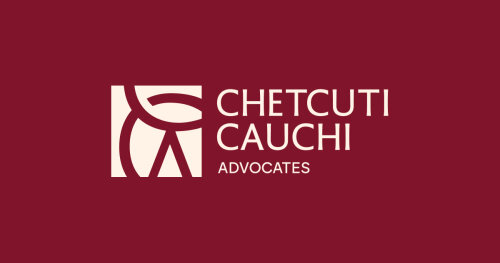Best Financial Services Regulation Lawyers in Valletta
Share your needs with us, get contacted by law firms.
Free. Takes 2 min.
List of the best lawyers in Valletta, Malta
About Financial Services Regulation Law in Valletta, Malta
Valletta, the capital of Malta, is a hub for financial services in the Mediterranean. The industry in Malta is highly regulated to ensure stability, transparency, and consumer protection. The Malta Financial Services Authority (MFSA) acts as the single regulator of financial services and is responsible for regulating and overseeing all financial, banking, and insurance operations. Malta's legal framework for financial services is designed to align with European Union standards, offering a robust environment for businesses while safeguarding consumers’ interests. Due to Malta's strategic position and favorable tax system, it has become a popular destination for international financial services providers.
Why You May Need a Lawyer
There are various situations in which individuals and businesses may require legal assistance in the realm of financial services regulation:
- Establishing a new financial services entity, such as a bank or investment firm, in Malta.
- Navigating compliance requirements set by the MFSA.
- Dealing with disputes related to financial services, customer rights, or contractual obligations.
- Handling complex financial transactions that require legal oversight.
- Seeking advice on tax implications and legal obligations.
- Facing investigations or enforcement actions by regulatory bodies.
In these situations, a lawyer specializing in financial services regulation can provide necessary insights and representation, ensuring adherence to local and EU laws.
Local Laws Overview
In Valletta, Malta's financial services regulation landscape is shaped by several key legislative instruments:
- The Malta Financial Services Authority Act: This act establishes the MFSA as the authority overseeing financial regulation in Malta.
- The Investment Services Act: Regulates investment firms and their operations within Malta.
- The Companies Act: Governs corporate entities, establishing the framework for financial accountability and governance.
- The Banking Act: Encompasses regulations concerning the establishment, management, control, and operation of banks.
- The Insurance Business Act: Provides the legal framework for the operation of insurance companies in Malta.
These laws are crafted to align with EU directives, ensuring that businesses in Malta operate to the highest standards of financial integrity and consumer protection.
Frequently Asked Questions
1. What entities are regulated by the MFSA?
The MFSA regulates banks, investment firms, insurance companies, pension schemes, and any other entities providing financial services in Malta.
2. How do I obtain an MFSA license for my financial services company?
Applicants must submit a detailed licensing application to the MFSA, demonstrating compliance with regulatory requirements. Legal assistance can help ensure completeness and accuracy.
3. Are Malta's financial regulations harmonized with EU regulations?
Yes, Malta's financial regulations closely mirror EU directives, which allows seamless operation within the European Economic Area (EEA).
4. What are the penalties for non-compliance with Maltese financial laws?
Penalties vary depending on the violation, ranging from fines and sanctions to revocation of licenses. Legal guidance is crucial in preventing and addressing these issues.
5. Can an overseas company establish a financial services branch in Malta?
Yes, international companies can set up branches in Malta, subject to MFSA approval and compliance with local laws.
6. How does Malta protect consumers in financial transactions?
The MFSA enforces strict consumer protection measures, ensuring transparency, fair treatment, and safeguarding consumer assets.
7. Is there a dispute resolution mechanism for financial services in Malta?
Yes, disputes can be resolved through the Financial Services Tribunal or through mediation and arbitration processes.
8. What are the main reporting obligations for financial institutions in Malta?
Financial institutions must adhere to regular reporting obligations, including financial statements, operational risks, and compliance with the MFSA guidelines.
9. Do fintech companies require specific licenses in Malta?
Yes, fintech companies must comply with applicable financial regulations and obtain the necessary licenses tailored to the type of services they provide.
10. How can a lawyer assist with regulatory compliance in Malta?
A lawyer can provide guidance on interpreting complex regulations, crafting compliance strategies, and representing your interests in legal proceedings.
Additional Resources
For further assistance in financial services regulation in Valletta, Malta, consider reaching out to the following resources:
- Malta Financial Services Authority (MFSA): The primary regulatory body overseeing all financial services.
- Malta Enterprise: Offers support and guidance to businesses operating in Malta.
- The Chamber of Advocates: Provides listings of qualified legal practitioners specializing in financial services regulation.
Next Steps
If you require legal assistance regarding financial services regulation in Valletta, Malta, consider the following steps:
- Identify the specific legal services you need and research potential lawyers or firms with expertise in financial regulations.
- Schedule initial consultations to discuss your case and evaluate their understanding and approach.
- Ensure the lawyer or firm is licensed to practice in Malta and has a good track record in financial regulation cases.
- Discuss your needs openly and agree on the terms of service and fees before appointing them to represent you.
Engaging with a knowledgeable and experienced legal professional is instrumental in navigating Malta's financial regulatory landscape effectively.
Lawzana helps you find the best lawyers and law firms in Valletta through a curated and pre-screened list of qualified legal professionals. Our platform offers rankings and detailed profiles of attorneys and law firms, allowing you to compare based on practice areas, including Financial Services Regulation, experience, and client feedback.
Each profile includes a description of the firm's areas of practice, client reviews, team members and partners, year of establishment, spoken languages, office locations, contact information, social media presence, and any published articles or resources. Most firms on our platform speak English and are experienced in both local and international legal matters.
Get a quote from top-rated law firms in Valletta, Malta — quickly, securely, and without unnecessary hassle.
Disclaimer:
The information provided on this page is for general informational purposes only and does not constitute legal advice. While we strive to ensure the accuracy and relevance of the content, legal information may change over time, and interpretations of the law can vary. You should always consult with a qualified legal professional for advice specific to your situation.
We disclaim all liability for actions taken or not taken based on the content of this page. If you believe any information is incorrect or outdated, please contact us, and we will review and update it where appropriate.















